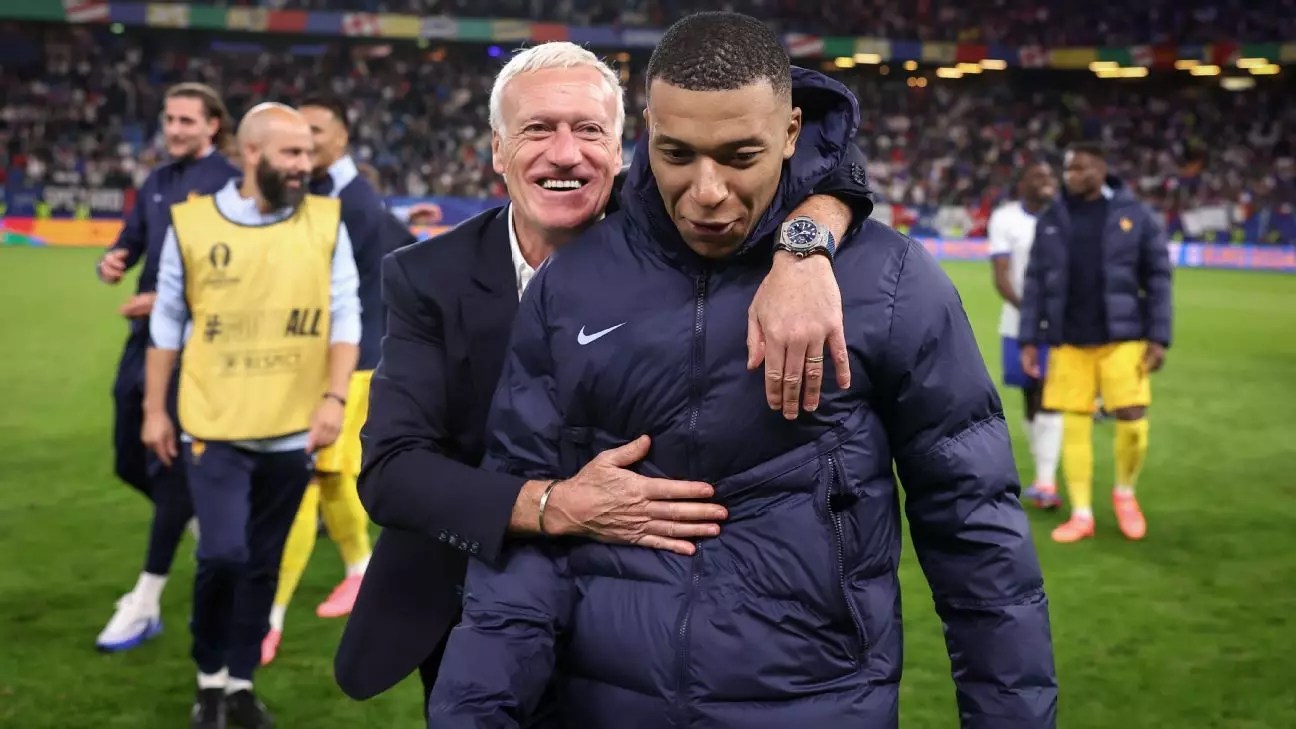In a momentous announcement, French national team coach Didier Deschamps confirmed that Kylian Mbappé will rejoin the squad for the Nations League quarterfinals against Croatia in March. This news marks a significant turning point for the team, as the 26-year-old forward, with an impressive 86 caps, had previously been absent during critical matches in late 2022 following his transfer to Real Madrid. Deschamps reassures fans and analysts alike that Mbappé remains deeply committed to his national duties, despite some off-field complexities that might have affected his previous selections.
One cannot overlook the context behind Mbappé’s absence from the national setup; his shift from Paris Saint-Germain to Real Madrid involved not just a tactical adjustment on the pitch but also a series of physical and psychological challenges. According to Deschamps, these factors played a role in Mbappé’s previous exclusions. The coach highlighted the importance of Mbappé’s adaptation period in Madrid, stating, “It took some time, but it fell into place because he did everything necessary.” This reinforces the notion that player welfare and mental health are becoming essential parts of national team decisions, mirroring a trend seen across football as players face increasing pressures from their clubs and international responsibilities.
The Challenge of Leadership
As discussions around leadership roles within the French squad emerge, the question arises about the impact of Mbappé’s prior absences. While Deschamps indicates that there have been ongoing internal conversations about team dynamics, he remains confident in Mbappé’s position as captain. His assertion that prior absences do not diminish Mbappé’s leadership suggests a broader understanding that great players are not solely defined by their availability but also by their capability to inspire and contribute when present. The coach’s willingness to engage in conversations with Mbappé about his role emphasizes a collaborative approach to leadership that may yield a more resilient team structure.
As France prepares for exciting times ahead, the looming change in coaching staff presents another layer of intrigue. Deschamps, who has steered the team through significant successes, including a World Cup victory, will exit after the 2026 World Cup. The anticipation around a potential successor is palpable, with Zinedine Zidane being a frontrunner. Deschamps’ acknowledgment of Zidane’s qualifications as a “natural” candidate speaks volumes about the respect present within the French football hierarchy and suggests a potential continuity of philosophy that could sustain a robust national team culture.
Kylian Mbappé’s impending return to the national squad is more than just a tactical win for France; it represents resilience, commitment, and a potential rejuvenation of the team’s spirit as they gear up for crucial international battles. Coupled with the uncertainty surrounding coaching leadership, the coming months will be pivotal for France, as they navigate the delicate balance of player welfare and professional obligations, all while aiming for international success.


Leave a Reply